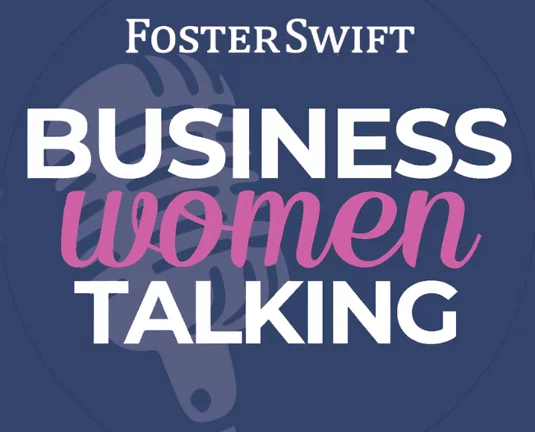COVID-19 Legal Issues for Employers
 It is important that your company’s leadership is monitoring the on-going developments related to the novel coronavirus, or COVID-19, with great interest. COVID-19 has been declared a pandemic by the Centers for Disease Control and Prevention (CDC). Your company needs to take the safety and well-being of teams, volunteers, and employees seriously. You should assign an employee to monitor the CDC and continue to follow CDC updates as they become available.
It is important that your company’s leadership is monitoring the on-going developments related to the novel coronavirus, or COVID-19, with great interest. COVID-19 has been declared a pandemic by the Centers for Disease Control and Prevention (CDC). Your company needs to take the safety and well-being of teams, volunteers, and employees seriously. You should assign an employee to monitor the CDC and continue to follow CDC updates as they become available.
Communication is important with your employees to notify them that your company is continuing to monitor the situation carefully to provide employees updates as needed.
As the world at large faces an uncertain future in regards to coronavirus, reassure your employees that your company is keeping its focus wholly on the health and safety of all its employees, and that you are preparing for what may come.
There is currently no vaccine to prevent coronavirus disease 2019 (COVID-19). The best way to prevent illness is to avoid being exposed to this virus.
Employers have many factors to consider regarding the current pandemic and should seek the counsel of their attorney when addressing these factors. Foster Swift’s attorneys can assist you in the evaluation of your specific circumstances relative to COVID-19. The following is general information and courses of action any employer should consider in evaluating their company’s needs.
A. Employment Issues:
- Frequently Asked Questions (FAQ): there is a list of FAQs put out by the EEOC regarding what an employer may do when a pandemic has been declared. During a pandemic, you can take the temperature of employees exhibiting outward symptoms of the virus. If the employee has symptoms, the employer may ask the employee to work from home or require that they not report to work for 14 days with pay. The employer may also require a doctor’s note clearing the employee for work.
- Communication with Employees by Employer: it is important that you communicate with your employees the fact that you are monitoring the situation and outline, in general terms, what you as a company are doing to monitor and prevent the spread of COVID-19 at your facilities.
- Review of Policies: the employer should review all policies in place that might be affected by COVID-19.
- Remote Work Policies
- Leave and Extended Leave Policies
- Cleaning Policies
- Communication Regarding Prevention Recommendations: You should communicate and remind employees about taking action to prevent contracting the virus.
- Avoid close contact with people who are sick.
- Avoid touching your eyes, nose, and mouth.
- Stay home when you are sick.
- Cover your cough or sneeze with a tissue, then throw the tissue in the trash.
- Clean and disinfect frequently touched objects and surfaces using a regular household cleaning spray or wipe.
B. Recommendations for Company Policies:
- Review and update company policies:
- Ban non-essential travel
- Monitor employees for symptoms
- Require employees who exhibit symptoms to stay home, or send home immediately if symptoms develop at work
- The company may not require COVID-19 testing
- Communicate expectations to employees regarding behavior for prevention of spread of the virus
- The fact that the CDC has labeled this a “pandemic” means there is a different set of rules that govern what the company may do as compared to regular ADA policies that must be followed by the company
- You must continue to keep employee health information confidential
- Communication Plan: Develop/Update a communication plan to communicate information to your employees.
- Infectious Disease Outbreak Response Plan: Create an Infectious Disease Outbreak Response Plan (IDORP) for the company. Every company should have an IDORP in place. IDORPs should include:
- Evacuation procedures
- Communication policies including who should disseminate the information
- Prevention plans for the spread of the disease
- Policies for employees who contract the disease
C. Customers:
- Review contracts: you should review contracts for provisions related to force majeure to determine if COVID-19 would invoke this clause. If force majeure does apply, determine your requirements to invoke same.
- Review fulfillment requirements: evaluate whether the company could fulfill their obligations under the contract with a certain percentage of employees off work to determine your critical levels.
- Assurances from Suppliers: Consider requesting assurances from your suppliers that they are putting contingency plans in place to fulfill their contractual obligations with your company.
D. Governor Whitmer’s Executive Order: Governor Whitmer issued an executive order on March 13, 2020. The Executive Order 2020-5 prohibits the "assemblages … in a single shared space … [for] all events of more than 250 people” within this state, except for the purposes of: industrial or manufacturing work; mass transit; or the purchase of groceries or consumer goods. The Governor’s office has issued clarifications since the issuance of the Executive Order. First, the order does apply to churches, and the Governor’s office recommends staggering services to stay under capacity. Second, it does not apply to large office spaces, in addition to the other businesses and gatherings explicitly mentioned in the order. The order applies to a “single shared space.” A large office space that has multiple divisions (offices, floors, etc.) would not fall under this order.
Foster Swift Collins & Smith, PC educational communications are intended for general information for our clients and friends. This article highlights specific areas of law and is not legal advice. The reader should consult an attorney to determine how this information applies to any specific situation.




